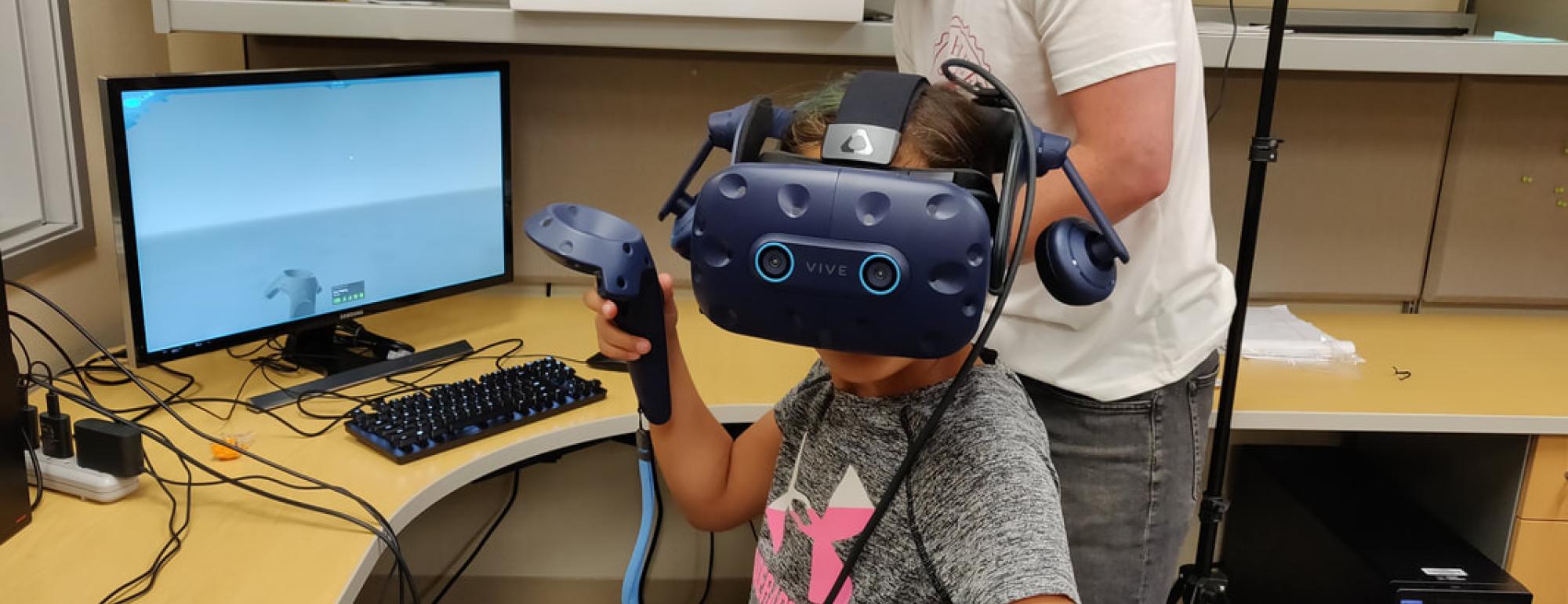Cognitive Science is a new and growing multidisciplinary study of the mind. How does the mind work? This is the foundational tenet of Cognitive Science. It is the interdisciplinary study of human behavior and intelligence, with a focus on how information is perceived, processed and transformed. To learn how the mind determines behavior, faculty draws from anthropology, biology, psychology, artificial intelligence, computer science, linguistics, neuroscience, philosophy and sociology.
For students interested in the liberal arts, the Cognitive Science major can be pursued as a Bachelor of Arts (A.B.) program. Alternatively, it can be pursued as a Bachelor of Science (B.S.) program for students with a stronger interest in the mathematical, neuroscience and computational foundations of the discipline. The main objective of both programs is to give the student a broad grounding in the integrated sciences of the mind and to connect approaches from different fields.
Declaring the Cognitive Science Major
The requirements to declare the Cognitive Science major are the same for each degree type.
- There are no specific courses required to declare the cognitive science major. However, we recommend you take Intro to Cognitive Science (CGS 01/PHI 10) to assess your interest in the subject.
- Create a degree worksheet in OASIS for your intended CGS degree type. Input all courses you have completed towards the major and courses you are scheduled for. You do not need to input courses you plan to take.
- Submit a Change of Major form in OASIS under the Forms & Petitions tab.
Have questions about declaring the cognitive science major?
Want to see an advisor about changing to cognitive science?
Cognitive Science Majors
Cognitive Science AB (General Emphasis)
Offers a flexible, interdisciplinary approach to studying the mind, language, and behavior. Great for students interested in the humanities and social sciences side of cognitive science.
Cognitive Science BS (Computational Emphasis)
Focuses on how the mind processes information through the lens of computer science, logic, and data. Ideal for students interested in AI, programming, or cognitive modeling.
Cognitive Science (Neuroscience Emphasis)
Explores the biological foundations of thought and behavior. Strong choice for students interested in the brain, medicine, or cognitive neuroscience research.
What is the difference between an AB or a BS?
The main difference lies in the type of coursework. The A.B. degree emphasizes the humanities, social sciences, and interdisciplinary learning, while the B.S. degree includes more coursework in traditional STEM areas like math and natural sciences.
In most cases, employers and graduate programs care more about the specific courses you’ve taken and the skills you’ve developed than whether your degree is labeled A.B. or B.S. Be sure to review job postings, graduate program prerequisites, or professional standards in your intended field. Some paths—particularly in STEM-heavy or clinical fields—may expect certain types of coursework, so always check the fine print and consult with an advisor when planning your degree.
Frequently Asked Questions
- What is the difference between the Major Worksheets, University Catalog, and OASIS Degree Worksheets?
We recommend you use all 3 tools in conjunction with each other to plan your major requirements and courses.
The Major Worksheets are a PDF layout of the major requirements and are publicly available.
Benefits: includes more course options to complete your major requirements called “substitutions”. These are internally approved courses from our faculty. Another benefit is that it includes course prerequisites.
Limitations: does not have course descriptions and does not have a way to track your major degree progress.
The OASIS degree worksheets are interactive and are only available for current students. They are most often used to check major degree progress.
Benefits: you can plug in courses you have completed or are scheduled for. It pulls courses directly from your record. Includes substitution options.
Limitations: does not include course descriptions or course prerequisites.
The University Catalog, which is a university wide tool which has information on majors, courses, and more. This tool is publicly available.
Benefits: includes course descriptions
Limitations: only updated once a year, and the information may be out of date. Does not include substitutions. Does not have a way to track your major degree progress.
- How many classes can I overlap between Cognitive Science and my other major?
There is no limit to overlapping lower division courses (001-099) between majors.
Students may only overlap 20% of upper-division units (001-199) between two majors. This is typically 8 units (2 courses), but could be more or less depending on which two majors you are pursuing. Please consult with a major advisor.
How to Calculate Overlap Allowance Between 2 Majors1. Find the minimum # of upper division units for each major. You can find this information in the University Catalog.
2. Identify the major that has the fewer minimum # of upper div units and multiply by 0.20.
3. The result you get is the number of overlap units allowed.
Example - Philosophy AB General and Psychology AB General Overlap
The minimum number of upper division units for the Philosophy AB general major is 36.
The minimum number of upper division units for the Psychology AB General major is 40.The Philosophy major has fewer minimum upper division units (36).
36 multiplied by 0.20 = 7.2. Therefore, the student can overlap 7 units between the two majors, which could be one 4-unit class, or a both 4-unit and 3-unit class.
Find the overlap policy on the College of Letters and Science website.- How many classes can I overlap between the Cognitive Science Major and a minor?
- Students can only overlap 1 course (lower or upper division) between a major and a minor.
- Can I P/NP any of the classes I need for my Cognitive Science Major?
- We will accept P/NP grades for CGS major requirements. However, there are 3 other considerations for P/NP grading.
1. All students under the College of Letters and Science are subject to a Limitation on Credits for Units Graded P.
1/4 Pass/No Pass Unit Rule for College of Letters and Science Students
Only 1/4 of your total UC Davis units can be taken as self-elected P/NP (meaning courses where you choose P/NP instead of a letter grade). This does not count courses that have P/NP grading only.
1/3 Pass/No Pass Unit Rule for all UC Davis Students
Only 1/3 of your total UC Davis units can be taken as self-elected P/NP and P/NP grading only courses.
2. Some graduate programs may not accept P grades for prerequisite coursework or will view a P grade as the lowest possible equivalent (C-)
3. If the course you want to P/NP is a prerequisite for another course, please check if that course requires a specific letter grade.
Also, read repeating courses with P/NP grades.



